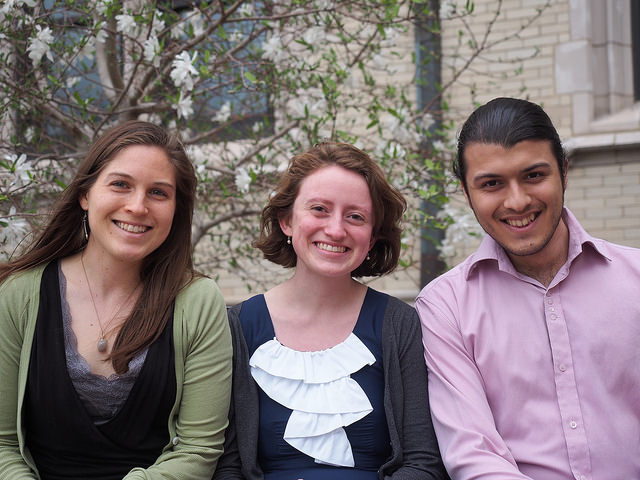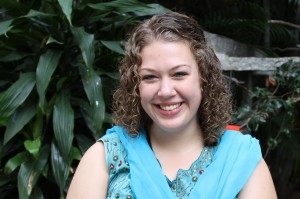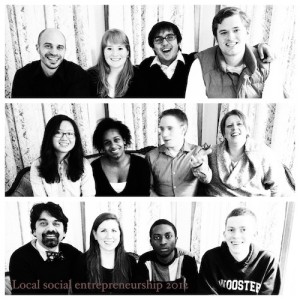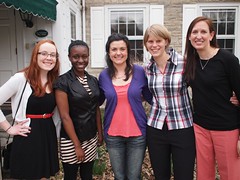by Maryanna Biggio
This winter we had the pleasure and privilege of working with three College of Wooster students recruited by the Social Entrepreneurship program. They were mentored by Matt Mariola. Matt is associate professor of environmental science and a board member of Killbuck Watershed Land Trust.
Erin Andrews-Sharer (senior Spanish major), Ruben Aguero (sophomore economics major) and Annette Hilton (sophomore geology major) use social enterprise principals to study the history and management of KWLT. They wrote a business plan which, when adopted, will make our organization much more effective and viable in the area of non-profit conservation groups.

COLLEGE OF WOOSTER students (from left)Erin Andrews-Sharer, Annette Hilton and Ruben Aguero. (Not pictured – Matt Mariola and KWLT President Maryanna Biggio)
We are impressed with the time the students spent com- paring KWLT with six other Ohio land trusts of similar size and scope of operations, and grateful to Owl Creek Conservancy, Appalachian Ohio Alliance, Licking Land Trust, Land Conservancy of Hamilton County, West Creek Conservancy, and Hillside Trust for sharing information.
We are surprised, and in many instances humbled, by the data the students collected. For instance, KWLT holds more conservation easements and protects more acres than the other land trusts in the study, yet we spend fewer hours per week with our easements than any of the others.
Four of the land trusts are fortunate to have at least one paid employee whose job description includes office management, public outreach, fundraising, increasing membership and event planning. KWLT is entirely a volunteer-based, 12-member board of directors. Each has diverse professional skills and/or a desire to enhance their community.
We also have an office in a wonderful setting and centrally located within the county areas we serve. At this time, the office is more or less a storage area for the bundles and boxes of paper documents that accumulate with conservation easements. Our “membership” is loosely defined as many of you who have supported us financially or simply expressed appreciation for what we do.
It now behooves us as a land trust with great responsibility to begin to implement this well-considered and candid assessment of our organization. We feel a good starting point would be to convert our paper-based system to an online database. This could and should be done within the next three to six months. Next comes a full-fledged fundraising campaign and for that we rely on a commitment from our board of trustees and citizens of the communities where we are an important, in many cases unrecognized, presence. And next comes the exciting possibility of a salaried part-time administrator. As with so many good things, it does take money.
Early on in our sessions with Annette, Erin and Ruben we were asked to define KWLT, but what we thought we heard was the word “quilt.” Puzzled, we began to explain that a quilt is made with love, usually patched with beautiful fabrics and patterns, and provides warmth, comfort and beauty. We have made quite a few quilts and have more in the planning stages.
Then it dawned on us, after all these years. Say it out loud: KWLT is “quilt.” We feel like we have a new theme song. Some quilts are a family heirloom and last forever – just like a conservation easement. KWLT is now an acronym, and like so many others, hidden and yet obvious. It took the young and brilliant minds of Annette and Erin and Ruben, along with Matt Mariola, to bring it to our attention. Thank you!
Editors note: Reprinted from Ripples. Sprint 2015. Vol 4. Issue 4. Killbuck Valley Land Trust Newsletter . To see an update of the way in which the organization continues to uses our insights, see this article. To see pictures of the other organizations we worked with see our Flickr photo stream.







